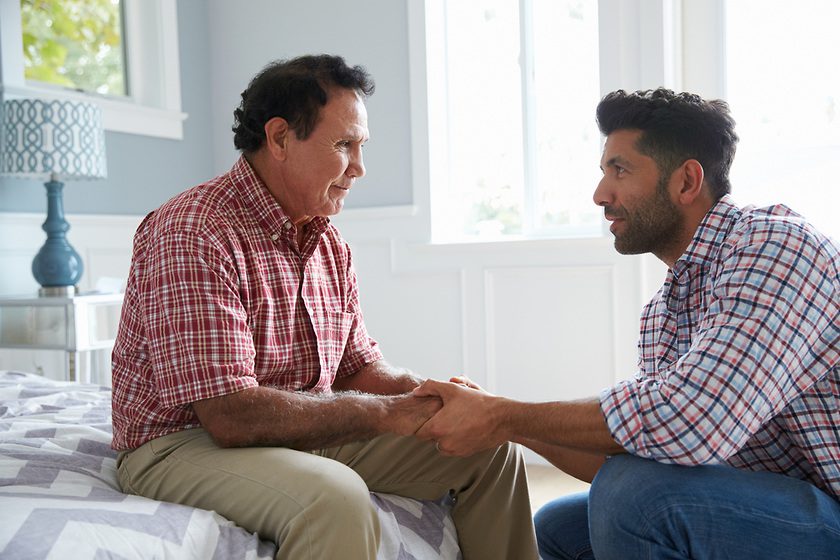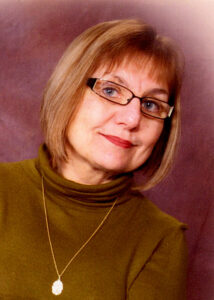
Relationships matter to Dr. Suzanna Waters Castillo. They have the power to transform lives.
Waters Castillo taps into this power in her many roles at the University of Wisconsin-Madison. She directs professional development programs in geriatric mental health at the Division of Continuing Studies. She also teaches professionals who work with older adults, using evidence-based resources and curricula she has developed with UW System colleagues. This instruction gives social workers, psychologists, nurses, and others the tools for providing high-quality mental health care to this growing population.
Her relationships with these professionals—especially colleagues in the Wisconsin Aging Network, a set of state and federal programs that help older adults—have created opportunities to further the Wisconsin Idea.
For instance, two former students recently asked Waters Castillo to develop a dementia-care curriculum for their communities in northern Wisconsin, where access to specialized training on this topic is limited. They also asked her to teach it, and she rose to the challenge. By joining forces with the Wood County Human Services Department and the Behavioral Health Training Partnership at UW-Green Bay, she trained more than 100 professionals who work with older adults, from health care and human services workers to first responders such as police and firefighters.
“Continuing Studies offers the Midwest’s only professional development certificate in geriatric mental health, and both of the students who contacted me went through that program,” Waters Castillo says. “They knew I could develop and teach a curriculum that achieves the kinds of outcomes they want.”
Reaching underserved communities

Some of Waters Castillo’s training sessions provide an introduction to dementia care, while others delve deeper, equipping attendees with the knowledge needed to train others. This includes practical strategies for addressing crises involving people with dementia.
“First we help them develop a basic understanding of the complex cognitive changes that occur throughout the stages of dementia. Then we show them how to respond with positive behaviors, the kind that help deescalate tense situations and promote connectedness with the person living with dementia,” Waters Castillo says.
In addition to offering face-to-face instruction on dementia care, Waters Castillo has created a guide on the subject and teaching materials other trainers can use and adapt. Students from the “train the trainers” program have taught her dementia-care curriculum to more than 200 professionals in northern Wisconsin.
The demand for this program keeps growing, far exceeding expectations. Waters Castillo plans to teach her curriculum in three more northern Wisconsin counties in the coming months.
“There’s a high demand for professionals with this knowledge and skill level, but few resources for meeting the demand,” she says.
Dedicated to outreach, Waters Castillo demonstrates the importance of meeting people where they are at emotionally, physically, and beyond. For the dementia-care trainings, it was important for her to travel to northern Wisconsin and have a dialogue with her colleagues. This helped her better understand the unique challenges these professionals and their communities face, and apply her new insights to the curriculum.
Turning trainees into trainers
But can one training prepare someone to teach this complex topic? Waters Castillo says yes, if that person has ample experience working with older adults and has spent some time training others. The face-to-face format helps participants acquire complicated information in a condensed timeframe. Additional educational resources help them stay up to date—and connected to UW-Madison.
“Face-to-face learning lets them ask about a particular circumstance they’ve experienced in working with an older adult and get an immediate response. They also get to practice the skills and strategies they’re learning with other students, and they receive critiques and other feedback right away,” she explains.
In-person learning helps them build relationships with each other—and the university—as well.
“We want this to be a meaningful professional development experience that meets learners’ needs and helps them respond to the complex challenges of working with people living with dementia,” Waters Castillo says. “This is the university reaching out in a very personal way. This is the Wisconsin Idea in action.”
To learn more about Continuing Studies’ programs on aging, including the Mental Health and the Older Adult certificate, see here.